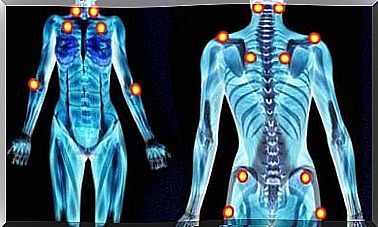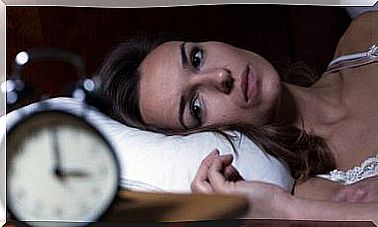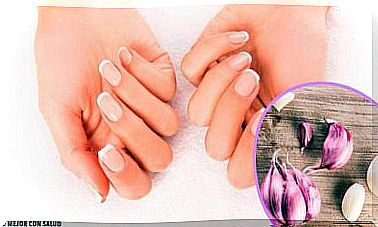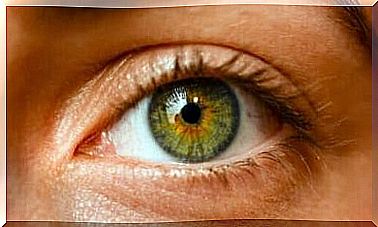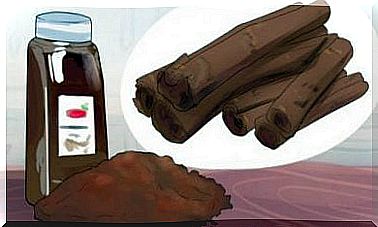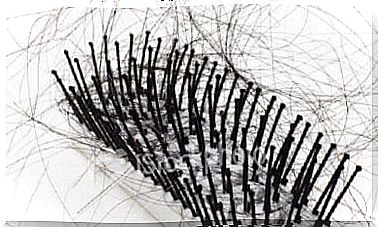Hyporexia Or Lack Of Appetite
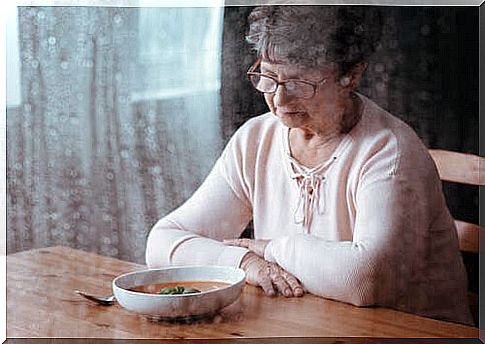
Hyporexia is the medical word used to refer to a loss of appetite. While this condition can occur at any age, it is particularly associated with aging.
The terms “hyporexia” and “anorexia” are similar. In fact, in practice it is difficult to distinguish them from each other. Anorexia causes a complete lack of appetite. Unfortunately, both cause a deterioration of health through total malnutrition or a deficiency of certain substances, such as vitamins.
Experts estimate that about 60% of people over the age of 65 have hyporexia. It seems that almost 90% of people over 80 suffer from it. In this article we explain everything you need to know about it.
What causes hyporexia?

As we mentioned above, hyporexia means a decreased appetite. This loss of appetite leads to reduced food intake. Therefore, it is usually accompanied by weight loss and fatigue.
The problem with hyporexia is that it can lead to significant nutritional deficiencies in the long run. It is common for people who suffer from it to have vitamin deficiencies and also suffer from anemia.
While it is true that energy requirements decrease with age, this is not the only cause of this condition. Loss of appetite is also often associated with psychological problems, such as stress or depression.
Also, there are many experts who believe that hyporexia is a result of reduced sensitivity due to age. In other words, a decreased sense of smell or taste also affects appetite.
Other situations that can lead to hyporexia include both acute and chronic diseases. In addition, in older people it is very common to find cases of cancer or digestive pathologies, which are a direct cause.
Other common causes
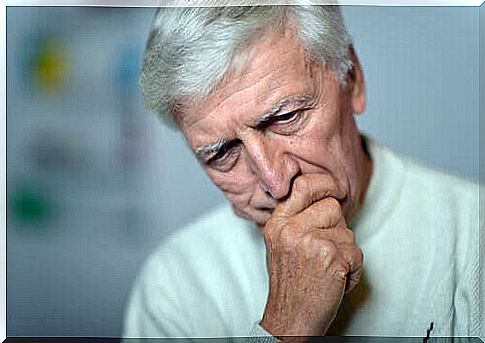
However, appetite is influenced by many factors. In the elderly, hyporexia is also often related to situations such as living in a nursing home, lack of proper care, or loneliness.
In addition, you should keep in mind that certain medications can cause this. Examples include codeine or morphine, but also chemotherapy.
In this regard, we should not forget that dental problems are also very common at this age. Any dental pathology or dry mouth, which also increases with age, can affect eating. Not being able to eat solid foods can be very tasteless.
What are the consequences of hyporexia?
Losing your appetite and eating less and less can lead to malnutrition. In the elderly, this malnutrition usually occurs slowly and progressively. So it is difficult to detect.
If someone is malnourished, his muscle mass decreases. As a result, they have less and less strength and their feeling of fatigue increases. In addition, nutrition is directly related to your state of health and the immune system.
Thus, hyporexia can cause any illness a person suffers from to worsen. That is why it is very important to start treatment as soon as possible. It is best to change eating habits.
Experts recommend eating smaller, higher-calorie meals several times a day. In addition, you should try to choose foods that are tasty and extend the duration of the meal, without any distractions. If these measures don’t help, you could try appetite-stimulating drugs.
Remember, the most important thing is to always consult your doctor if you have any questions. Your doctor can assess the situation and, depending on the cause, recommend concrete measures that may help in your case.

